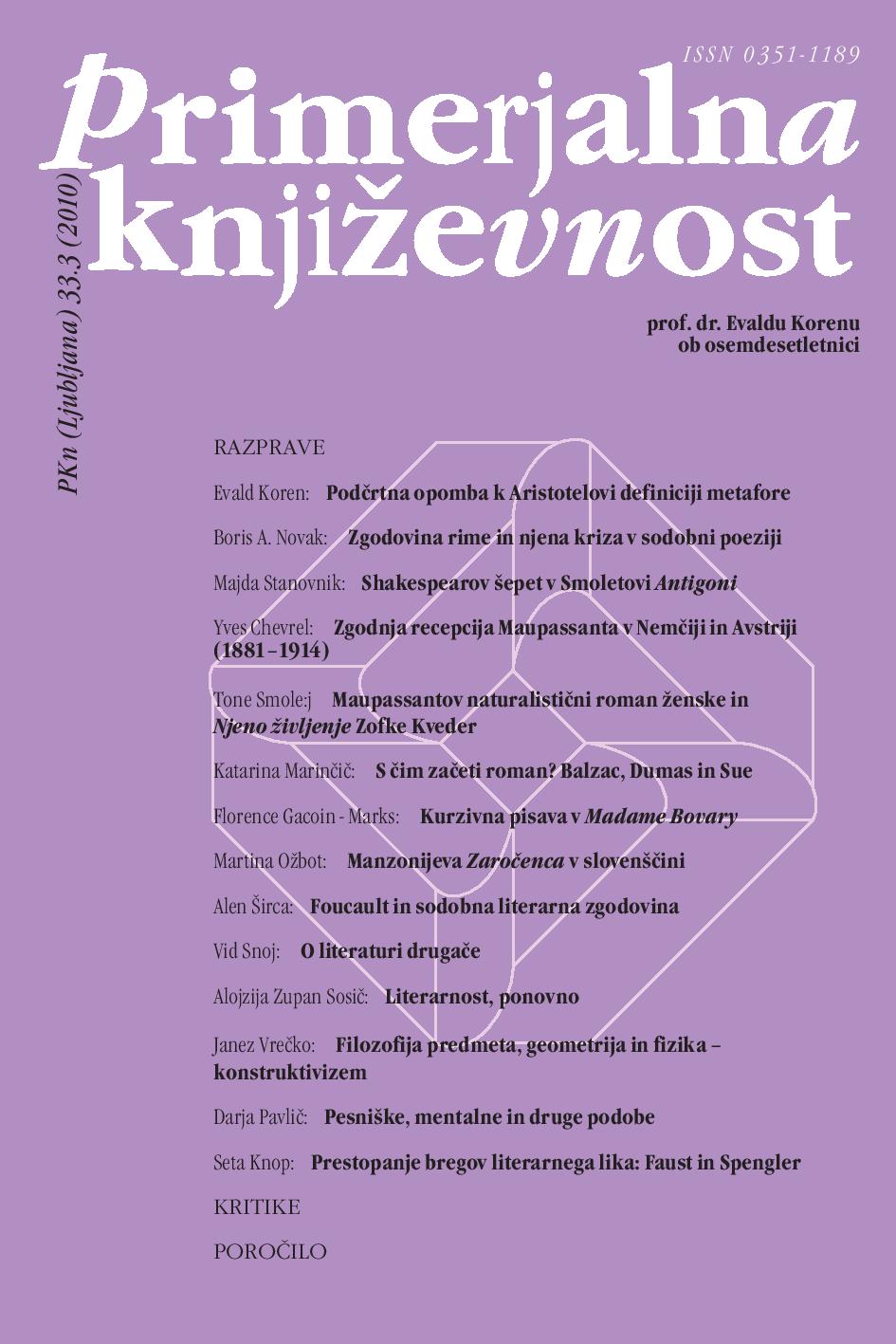Crossing the Borders of the Literary Character: Faust and Spengler
Keywords:
philosophy of culture, Spengler, Oswald, German literature, Faust, FaustianismAbstract
With Oswald Spengler and his epochal work The Decline of the West the hero of Goethe’s canonical poem ultimately crossed the borders of the literary character and became the personification of the Western (European) man, characterized by insatiable striving, ceaseless activity and dynamic orientation towards the infinitely open space and time. – Spengler conceived his “Morphology of world literature” as a cyclical history of cultures which, like living organisms, go through the periods of growth, blossom, exhaustion and finally decay, when we no longer speak of culture, but of civilization. Faust is for Spengler “the portrait of the whole culture” – in his character we can trace the transition from the living culture to dead civilization: the passionate dreamer from the first part of the poem, written in 1808, turns in the second part, written a quarter of a century later, into a Saint-Simonistic engineer and organizer (as well as colonizer) and becomes the modern homo faber. – Faustian culture is for Spengler first of all the culture of will; it is the culture of incessant activity driven by the imperative “you must”, and is as such in polar opposition to the Apollonian culture of the ancient Greeks, which shows little interest for constant changing of the world. Spengler thus substitutes the Nietzschean couple Apollonian/Dionysian with the couple Apollonian/Faustian, directly referring to Faust’s translation of the ancient Greek expression logos with the word der Tat. – The time of civilization is the time of technical sciences, the time of materialism, mechanicism and faith in experiments, atoms and numbers. The Faustian will reaches its perfection in the symbol of machine, by the help of which it wants to master and enslave the nature; but it turns out that by doing this the Faustian man has also enslaved himself. In accordance to Hegelian dialectics of master and slave (or Adorno’s and Horkheimer’s dialectics of enlightenment) his victory over nature turns into its opposition, for he has become the slave of his own creativity. The machine pushed him on the way from which there is no return; it works without stopping and forces him to work with it. – In this ambiguity the “reactionary modernist” Spengler (who is also ironically depicted in Thomas Mann’s Doktor Faustus in the character of dr. Breisacher) seems to be less optimistic than Goethe, on whose hero he has built his Faustian man. With Spengler Faust became the character who embodies the contradictions of modern age; his insatiable striving for knowledge is not only something “positive” which is supposed to bring benefit to the mankind, but can also – implemented in reality – display its “negative”, destructive side.References
Adorno, Theodor W. »Spengler nach dem Untergang«. Kulturkritik und Gesellschaft. Prismen (Gesammelte Schriften, zv. 10). Frankfurt ob Majni: Suhrkamp, 1977. 47–70.
Cooper, David E. »Reactionary Modernism and Self-Conscious Myth«. Myth and the Making of Modernity. Ur. Michael Bell in Peter Poellner. Amsterdam: Rodopi, 1998. [99]–113.
Mann, Thomas. Doktor Faustus. Prev. M. Mihelič. Ljubljana: Cankarjeva založba, 1970. (Sto romanov; 49).
Rosenberg, Alfred. Der Mythus des 20. Jahrhunderts: eine Wertung der seelisch-geistigen Gestaltenkämpfe unserer Zeit. München: Hoheneichen-Verlag, 1941.
Spengler, Oswald. Der Mensch und die Technik. München: C. H. Beck, 1931.
– – –. Untergang des Abendlandes. München: C. H. Beck, 1927.
– – –. Zaton Zahoda. I. del. Oris morfologije svetovne zgodovine. Prev. K. Sedmak in A. Leskovec. Ljubljana: Slovenska matica, 2009.
Thurnher, Rainer. »Oswald Spengler: njegova filozofija povijesti i njezine političko-ideološke implikacije«. Propast Zapada I. Oswald Spengler. Zagreb: Demetra, 1998. XIII–XXX.
Wyss, Beat. Hegel’s Art History and the Critique of Modernity. Cambridge: Cambridge UP, 2008.


